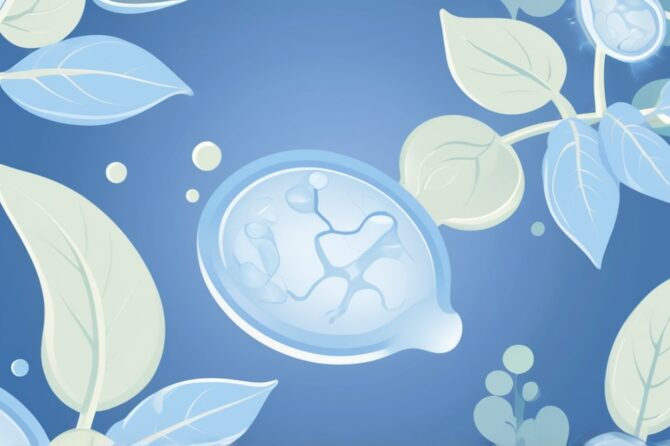
Noni (Morinda citrifolia) and Its Effects on Prostate Health and Urinary Function
Abstract
Noni (Morinda citrifolia) is a tropical plant long revered in Polynesian, Southeast Asian, and Pacific Islander traditional medicine. In recent decades, scientific interest in Noni has expanded due to its broad pharmacological potential—including anti-inflammatory, antioxidant, and anticancer properties. Among these emerging areas of study, Noni’s impact on prostate health and urinary function is gaining attention.
Introduction
Prostate disorders—most notably benign prostatic hyperplasia (BPH), prostatitis, and prostate cancer—represent a growing concern for aging male populations worldwide. As men age, the risk of prostate enlargement, inflammation, and subsequent urinary complications increases. While conventional treatments exist, the potential of natural supplements such as Noni to prevent or ameliorate these conditions provides a compelling area for research and integrative therapy.
Phytochemical Composition of Noni
Noni fruit, leaves, seeds, and roots are rich in a variety of bioactive compounds, including:
- Iridoids (e.g., deacetylasperulosidic acid)
- Polysaccharides
- Anthraquinones
- Scopoletin
- Flavonoids
- Triterpenes
- Fatty acids (notably linoleic and capric acids)
These compounds are known for their anti-inflammatory, immunomodulatory, analgesic, and antioxidant properties—functions that are especially important in protecting prostate tissue and maintaining proper urinary tract function.
Mechanisms of Action Related to Prostate Health
1. Anti-Inflammatory Properties
Chronic inflammation is central to the development of both BPH and prostatitis. Noni has been shown to suppress COX-2 expression, reduce levels of pro-inflammatory cytokines (like IL-6 and TNF-α), and modulate nitric oxide production—contributing to a lower inflammatory state in prostate tissue.
2. Antioxidant Defense
Oxidative stress plays a critical role in prostate tissue damage and carcinogenesis. Noni’s iridoids and flavonoids exhibit strong free-radical scavenging activity, reducing oxidative damage and possibly mitigating the progression of both benign and malignant prostate disorders.
3. Antiproliferative Effects
Some in vitro studies have demonstrated that Noni extracts can inhibit proliferation of prostate cancer cells by triggering apoptosis (programmed cell death), especially through modulation of pathways like p53 and caspases. Though clinical relevance requires more evidence, this suggests a possible chemopreventive effect.
4. Hormonal Modulation
Noni may also exert indirect effects on androgen metabolism. Some animal studies suggest downregulation of 5-alpha-reductase—an enzyme that converts testosterone to dihydrotestosterone (DHT), which is heavily implicated in prostate growth.
Urinary Benefits and Support
Men with prostate issues frequently report lower urinary tract symptoms (LUTS) including urgency, weak stream, nocturia, and incomplete voiding. Noni’s smooth muscle relaxant properties, likely mediated through calcium channel blockade and nitric oxide enhancement, may assist in:
- Improving urine flow
- Reducing urinary frequency
- Relieving discomfort associated with inflamed or enlarged prostate
Moreover, the fruit has diuretic properties, supporting renal clearance and helping flush the urinary tract—an added benefit in cases of prostatitis or recurrent urinary tract infections (UTIs).
Clinical and Preclinical Evidence
- Animal Studies: Rodent models of induced prostatitis have shown that oral administration of Noni extracts reduced prostate weight, lowered inflammatory markers, and improved histopathological signs.
- Human Studies: Although human trials focused solely on prostate outcomes are limited, small-scale studies have confirmed Noni’s systemic anti-inflammatory and antioxidant benefits, suggesting potential prostate-protective roles in broader supplementation contexts.
- Cancer Studies: Pilot studies on cancer patients have reported improved quality of life and reduced oxidative stress markers when supplemented with Noni juice, though direct prostate cancer outcome data remains scarce.
Ingestion Methods and Dosage
Noni is consumed in various forms:
- Noni Juice: The most common preparation. Typically, 30–60 mL per day is used for general wellness.
- Powdered Fruit or Capsules: Dried and encapsulated forms, with typical doses ranging from 500–1500 mg daily.
- Fermented Noni Juice: Fermentation is believed to enhance bioavailability and probiotic synergy.
- Tinctures and Extracts: Alcohol-based solutions, more potent and suitable for specific therapeutic goals.
Note: Overconsumption of Noni may cause liver enzyme elevations in rare cases. Individuals with liver disease or those taking hepatotoxic drugs should consult a healthcare professional before use.
Potential Contraindications and Interactions
- Hepatic Concerns: Sporadic reports of hepatotoxicity call for moderation and monitoring.
- Potassium Content: Noni is high in potassium—caution is advised for those with renal insufficiency or on potassium-sparing diuretics.
- Blood Thinners: Due to scopoletin content, Noni may interact with anticoagulant medications.
Conclusion
Noni’s bioactive profile makes it a promising agent for supporting prostate health, especially in reducing inflammation, combating oxidative stress, and potentially modulating hormone-related prostate enlargement. While more targeted human trials are needed, existing data justify its use as a complementary supplement in the prevention and management of prostate-related conditions.
Leave a reply

Leave a reply